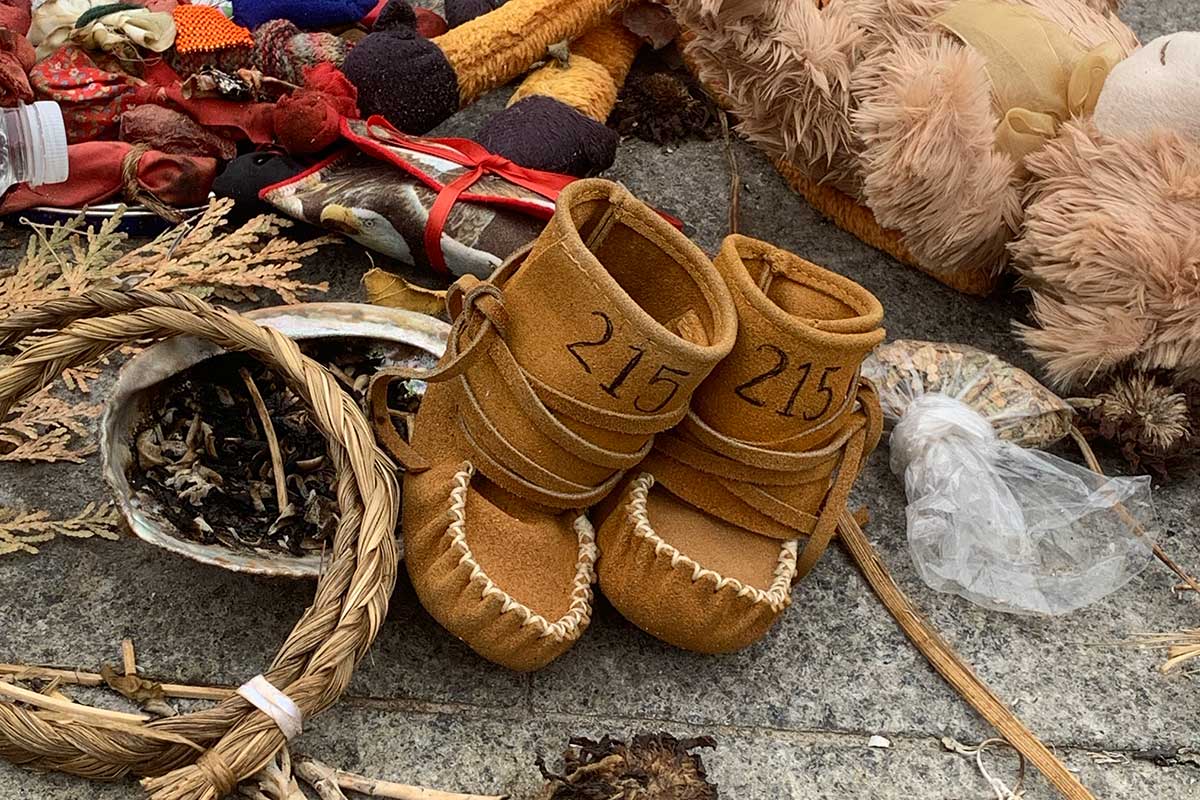Like so many across the country, people in the Parish of Huntley were shaken and moved by the news that the unmarked graves of 215 children had been identified near the grounds of the former Indian Residential School in Kamloops, B.C. last summer and by subsequent discoveries at the sites of other schools.
A makeshift memorial took shape at St. James Church in Carp, Ont. as people left children’s shoes on the steps leading into the church.
The Rev. Canon Baxter Park spoke about Indian Residential Schools as a part of the first Sunday service when parishioners could worship in-person again. Park told Crosstalk, that after all the negative news about the churches’ roles in operating residential schools, he thought the memorial outside the church was important as a kind of visual confession. “When we come into church every Sunday for communion, first we confess, we confess that we are not perfect human beings, that we have done some things wrong, and for me, the shoes on the steps are a form of institutional confession,” he said. “The institution has failed. We failed those First Nations people, the Indigenous peoples of Canada, and we failed those children specifically. And so, we put that there as a reminder that our institution is far from perfect.”
But he added, “As members of the church, I don’t want us to be completely demoralized, so I want to talk about what the Anglican Church has done.” He went on to recount changes in the Anglican Church of Canada’s relationships with Indigenous peoples going back to a 1969 report, which recommended moving from a paternalistic position to partnership. He spoke of Archbishop Michael Peers apology in 1993, and the creation, more than 25 years ago, of the Anglican Healing Fund, which offers grants for programs to help educate and heal the damage caused by residential schools.
“What’s being demanded by the public now of some churches was put in place by us back in the early 1990s,” he explained, “That’s the Anglican Healing Fund.”
Park has close connections with this history. As a military chaplain, he lived in Haida Gwaii on the West Coast and got to know and learn from Indigenous elders there as well as others while he served on the Council of General Synod from 1993 to 1999.
After the service, a couple spoke with Park and said, “We’re coming into some money and need to give some of it to charity because that’s who we are. And it sounds like this is exactly the kind of thing that we would like to support.” Park gave them some printed information about the fund and links so they could research it more for themselves.
In December, the couple, who want to remain anonymous, presented him with a cheque for $33,000 for the Anglican Healing Fund.
Park was overjoyed. “This is a huge gift and there’s so many ways they could have spent this money but to choose to give it to the Anglican Healing Fund speaks to their faith and their commitment to reconciliation as well.”
Park said he thinks that there is spirit for reconciliation out there. “There are lots of things that could have been done locally with this money, it’s fair to say,” he acknowledged, but when he announced news of the donation, “Everybody on our parish council were ecstatic to hear the news that someone in one of our three congregations in our parish had been moved and motivated to make such a significant gift.”


St. James, Morrisburg — Stormont Deanery